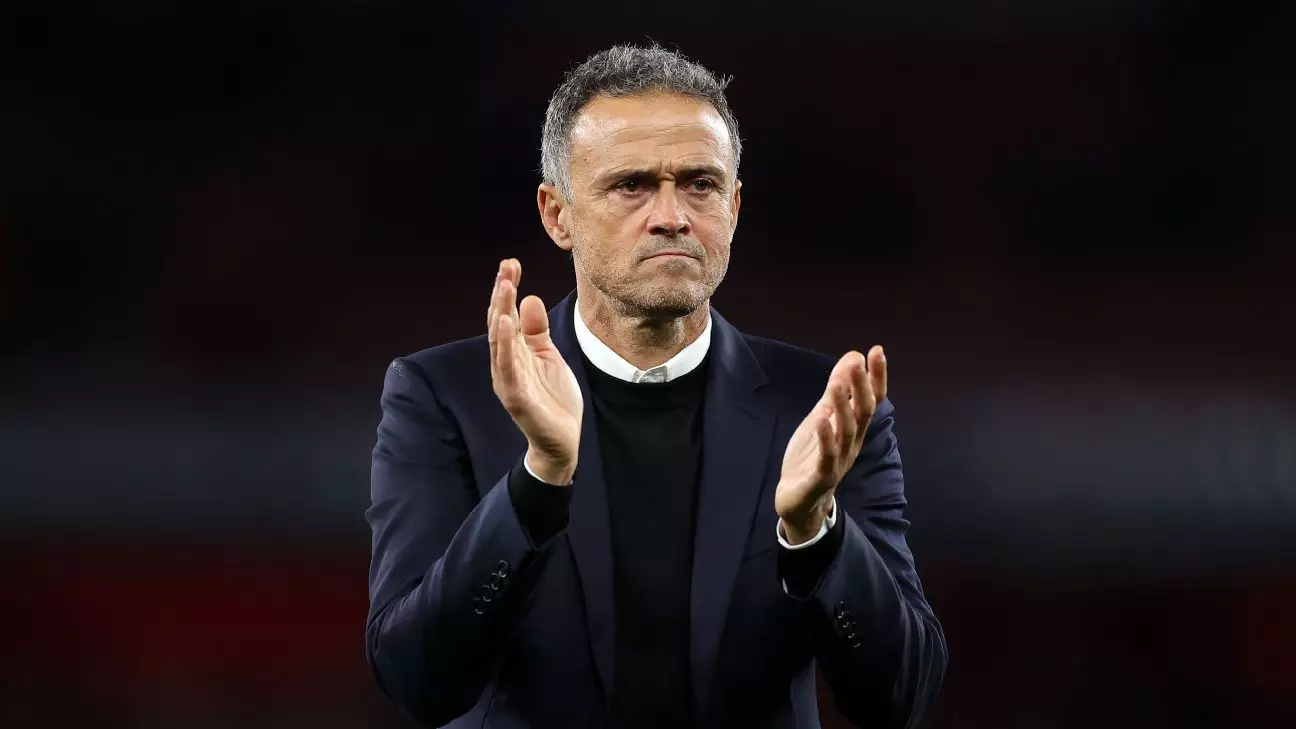Paris Saint-Germain (PSG) has found itself navigating turbulent waters in the early stages of the season, especially following the departure of superstar Kylian Mbappé. As the team looks to find its footing, manager Luis Enrique has made a bold choice in sidelining Ousmane Dembélé for disciplinary reasons. This decision merits a close examination, especially considering the repercussions that it has had on the team’s performance and dynamics.
Dembélé, who had been carving out a significant role in the PSG attack—with a commendable tally of four goals and four assists—was dropped during a vital Champions League match against Arsenal. His absence was keenly felt as PSG succumbed to a 2-0 defeat, marking their first loss of the season. While dropping a key player could signal turmoil or a lack of vision from management, Enrique’s unwavering stance on discipline illuminates an essential truth about team dynamics: sometimes, the collective must take precedence over individual talent.
Luis Enrique’s rationale behind the decision to bench Dembélé reflects his broader coaching philosophy—one that imposes strict accountability among players. The manager acknowledged a “discussion” with Dembélé, hinting at an underlying issue that may affect the player’s commitment to the team. During a news conference, Enrique asserted that when a player fails to meet their obligations, consequences must follow; this unwavering approach may appear harsh, yet it aligns perfectly with his intent to foster an environment focused on collective success.
His assertion that he is capable of both rigorous discipline and leniency speaks volumes about his adaptability as a coach. According to Enrique, every player has obligations that extend beyond mere performance on the field; this includes professionalism, dedication, and teamwork. Such conduct is imperative, especially in a high-stakes environment where egos can easily flare. The decision, albeit challenging, underscores a crucial aspect of leadership in sports: prioritizing the team’s integrity over individual talents.
While Dembélé’s absence raised eyebrows, PSG has demonstrated resilience early in the season, amassing 16 points and sitting atop Ligue 1, ahead of AS Monaco. This speaks to the depth of talent within the squad, as players rally together to mitigate the impact of any absences. As Enrique noted, following the loss to Arsenal, the team has revised its mentality and is poised to compete in their upcoming league match against Nice. This adaptability emphasizes the importance of both mental fortitude and teamwork in bouncing back from adversity.
The challenge against Nice is layered; despite their mid-table status, they possess a sound defense, having only conceded six goals this season. Under the stewardship of their new coach, Franck Haise, the team has proven to be resilient and organized, thereby presenting a difficult matchup for PSG. Henrique sounds a note of caution—acknowledging Nice’s high press and tactical acumen—demonstrating his awareness that every match is as much a mental battle as it is physical.
Luis Enrique’s decision to drop Ousmane Dembélé for disciplinary reasons illuminates the complexities involved in team management at elite levels. By prioritizing discipline and obligations over individual prowess, he underscores a philosophy that champions teamwork and accountability. While the immediate effects of the decision may be uncomfortable, there’s an inherent understanding that for PSG to navigate their season successfully, commitment to team values must supersede individual eccentricities.
In this light, Enrique’s approach can be seen not merely as a punitive measure but as a calculated step toward cultivating a cohesive and disciplined squad. It is a reminder that in the pantheon of sports, success is rarely the result of individual accolades; rather, it thrives in a culture of respect, commitment, and unity. As the competition intensifies ahead, the true impact of these early managerial decisions will unfold, ultimately shaping the fortunes of Paris Saint-Germain.

